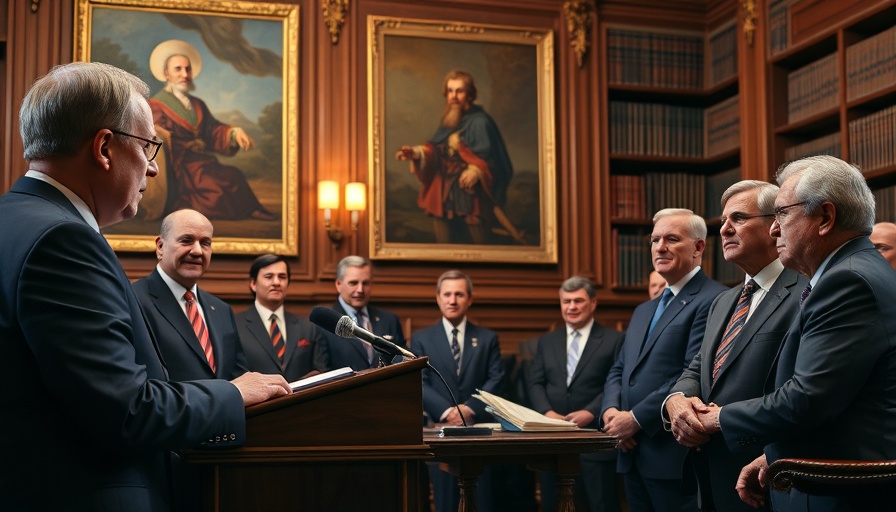
Hyundai's $21 Billion Investment: A Game-Changer for U.S. Manufacturing
In a significant move for the U.S. manufacturing sector, Hyundai Motor Group has announced a massive $21 billion investment in its American operations. This initiative, jointly revealed by Hyundai's Executive Chairman Euisun Chung and former President Donald Trump, marks a pivotal moment not only for the company but also for the evolving landscape of the automotive industry in the United States.
New Steel Plant in Louisiana: Empowering the EV Supply Chain
At the heart of this investment is the establishment of a new $5.8 billion steel plant in Louisiana, which is projected to generate over 1,300 jobs. This facility represents Hyundai's very first steel manufacturing plant in the U.S. and aims to produce more than 2.7 million metric tons of steel annually. Importantly, this steel will support Hyundai’s electric vehicle (EV) production facilities in Georgia and Alabama, enhancing the automaker's capacity to produce more than one million vehicles each year. It is a strategic step towards strengthening the supply chain for materials crucial to the future of EV manufacturing.
Understanding the Broader Context: Onshoring Manufacturing
The announcement comes in the wake of a broader push across various industries to bring manufacturing back to American soil, a key part of Trump's economic strategy. The initiative addresses ongoing concerns regarding supply chain vulnerabilities, particularly highlighted during the recent global disruptions. By investing in local manufacturing capabilities, Hyundai not only secures its operations against such challenges but also aligns with the government's goals of economic revitalization through domestic job creation.
Future Implications for the Automotive Industry
As Hyundai expands its manufacturing footprint, the broader implications for the automotive industry are significant. The investment will not only foster job growth and economic activity in Louisiana and surrounding regions but will also position Hyundai as a leader in the burgeoning EV market within the U.S. It showcases the company's commitment to evolving alongside changing industry dynamics and consumer preferences, especially as demand for electric vehicles continues to rise.
What This Means for Construction Companies
For businesses in the construction sector, Hyundai’s planned construction of the steel plant opens a multitude of opportunities. Firms involved in commercial construction could benefit from new contracts, as well as the demand for skilled labor and materials needed to bring this project to fruition. Additionally, this investment may serve as a catalyst for further developments in the region, potentially paving the way for additional infrastructure projects fueled by increased manufacturing activities.
Conclusion: A Call for Stakeholders to Engage
The $21 billion investment from Hyundai signals a transformative shift in U.S. manufacturing. Stakeholders, especially those in the construction and manufacturing sectors, should take note of these developments, as they represent not only a commitment to onshoring but also an opportunity for growth and collaboration. As Hyundai continues to shape the landscape of automotive manufacturing, staying informed and prepared to react to these changes can position businesses favorably in this evolving market.
 Add Row
Add Row  Add
Add 




 Add Row
Add Row  Add
Add 

Write A Comment